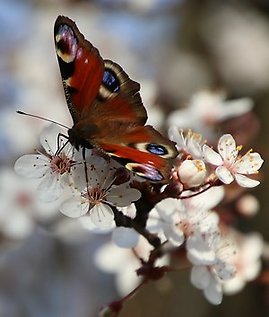Reflexology
A SHORT HISTORY
Reflexology , in various form is used in many cultures today but it can be traced back to ancient civilisations B.C. such as Egypt, China and India. . Zone Therapy, where the feet are divided into zones with corresponding zones on the whole body was known and used in Europe from the late 1500's as was Pressure Therapy. In the early 1900's, Zone Therapy was brought to America by Dr William Fitzgerald. He divided the body and feet into 10 longitudinal zones and noted that pressure of the skin in any area of a zone resulted in everything in that zone being affected.
Dr Shelby Riley and Eunice Ingham, a therapist working with Dr Riley, took Fitzgerald's work further and developed specific pressure techniques and most importantly, reflex charts of the feet, hands and head in the late 1930's and 1940's.
Doreen Bayly, a student of Eunice Ingham introduced Reflexology to Britain in the 1960's, where it has become well established.
WHAT IS REFLEXOLOGY?
Reflexology is usually applied to the feet but can also be applied to the hands, the face and even the ears, as they all reflect the entire body, i.e. a sensitive toe is often reflecting an issue in another part of the body, far from the affected toe.
As well as the zonal connections, there are a number of important meridians (energy channels) which begin and end in the feet - spleen, liver, stomach, gall bladder, kidney, bladder - and also many acupressure points. Other useful acupressure points are to be found in the hands and important meridians ending/ beginning in the fingers are heart, small intestine, triple warmer, circulation sex, lung and large intestine.
Congestion or tension in areas of the feet, hands and face mirror imbalances in corresponding parts of the body. We call these areas reflexes. Using gentle pressure in a specific way, a Reflexologist can detect tiny deposits and imbalances/ blockages in the tissues and structure of the feet. Working such points to release blockages enables the body's natural healing processes to restore harmony and balance to our body functioning - "homeostasis" in medical language.
Reflexology brings relief to a range of acute/ chronic conditions, especially conditions involving an under- or over-functioning of a body organ or system,i.e. complaints relating to the digestive system or the endocrine system.
It is also very relaxing and therefore helpful in addressing stress, sleeping problems, depression and anxiety often in combination with a course of an appropriate flower essence.
Nutritional changes can also be helpful in addressing these issues and work well in combination with reflexology.
Reflexology has been shown to be beneficial in addressing fertility issues along with nutritional input.
In my practice I have found it effective in treating painful structural problems such as hip, knee and shoulder problems.
A Reflexology treatment is an excellent MOT for the body as it stimulates the blood, lymph, digestive, urinary, endocrine and nervous systems to work effectively and in tandem with one another, thus also supporting the immune system in functioning effectively.
I have studied many different Reflexology disciplines over my time as a practitioner and incorporate aspects of them into my treatments as appropriate. Colour Reflexology, Universal Reflexology with Chris Stormer, CranioSacral Reflexology, Vertical Reflexology with Lynn Booth, Chi Reflexology with Moss Arnold, Precision Reflexology and some Nerve Reflexology with Nico Pauly have all been influential. I recently learned Aryuvedic Facial Reflexology in 2016, which is a lovely relaxing treatment and very restorative for the skin of the face and neck!
I recently completed the initial course in Spinal Reflexology with Carol Samuel, which is related to Nerve Reflexology and research has proven it to be effective in addressing pain, particularly back pain. The Spinal Reflexology approach is perhaps more scientific in its approach and it gives useful insights into explaining how Reflexology works, in a way that people unfamiliar with energy work can understand.
I find Reflexology as fascinating now as I did when I first started my training and feel it has a real contribution to make to healthcare. An increasing amount of Reflexology research is being published and I hope the potential of this treatment will soon be recognised by the relevant healthcare authorities in Britain.
